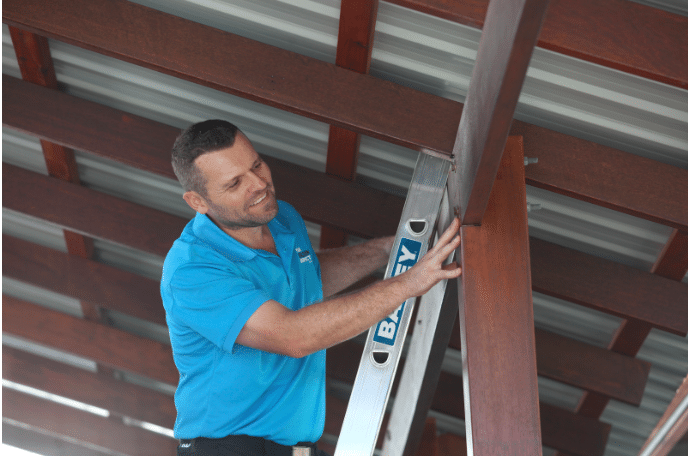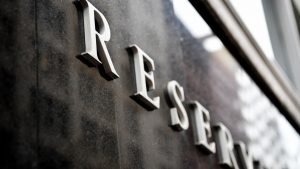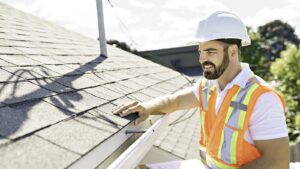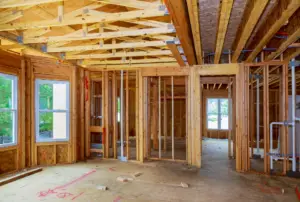Navigating Home Construction: The Role of a Building Inspector
Introduction to Home Construction and Building Inspectors
Home construction is a complex process that involves a wide range of skill sets and expertise. From architects and engineers to builders and contractors, many individuals come together to design and construct the homes we live in. Despite the complexity of home construction, it is a process that has been mastered over time.
Throughout history, people have built homes with various materials and methods. In modern times, building codes and regulations help ensure homes are safe and structurally sound. Building inspectors play an integral role in the home construction by ensuring that homes are built according to these codes and regulations. Without building inspectors, homes could be constructed with unsafe materials or in ways that do not meet safety standards.
Building inspectors are professionals that are trained to ensure that building codes and regulations are followed during the construction process. These inspectors are often employed by local or state governments and work closely with builders and contractors to ensure that homes are built safely and up to code.
This building inspection services can include inspecting the foundation, framing, electrical systems, and even the final building inspection report. Building inspectors are highly trained and skilled professionals who use their knowledge and experience to keep homes safe for future occupants. The importance of building inspectors must be balanced, as the safety of a home depends largely on their expertise due diligence and attention to detail.
Understanding the Role of a Building Inspector
Building inspectors are experts who play a critical role in ensuring the safety and quality of buildings. They are responsible for assessing whether a building meets specific codes and regulations, ensuring that the construction has adhered to safety protocols, and evaluating the general quality of the structure.
Their duties involve thoroughly examining various aspects of the property report doing a full building and pest inspection, including electrical, plumbing, and heating systems, and reviewing detailed report on the structural integrity to minimize any potential risks. These professionals must possess extensive experience, excellent attention to detail and a broad understanding of construction codes, inspection services and procedures.
It is important to know that building inspectors can either work for government bodies or be privately hired. Governmental inspectors are employed by local, state, and federal agencies to enforce specific building codes. In contrast, private inspectors are typically hired by building owners, developers, or architects to assess the structure independently.
Despite the differences in their employment, both types of inspectors share a common goal: to ensure that buildings are safe and well-constructed. As such, building inspectors hold a crucial position in the construction industry, and their contributions help to maintain the safety and quality of buildings for everyone.
Pre-Construction Phase: Building Inspector’s Involvement
The foundation for a successful build is laid in the pre-construction phase of a building project. One crucial aspect of this phase is the involvement of the building inspector. The building inspector ensures the project adheres to building codes and safety regulations, from initial planning to issuing permits. As plans are being reviewed, the inspector is responsible for examining all aspects to ensure the building will be structurally sound and meet all requirements.
Additionally pre purchase building inspection itself, it is important for prospective buyer to note the building inspector’s involvement booking process and in issuing permits, as these documents set forth specific rules and determine how the site can be used in the future. With the guidance of the building inspector, the pre-construction phase and home building inspection can be completed confidently, knowing that every detail has been thoroughly reviewed and approved.
Another important component of the building inspector’s involvement in the pre-construction phase is their assistance in identifying areas of concern and providing guidance on addressing these issues. This includes determining if certain permits are required for the project, reviewing site plans for accessibility and stormwater management, and ensuring that all aspects comply with local and state regulations.
The building inspector also serves as a resource for developers, contractors, and homeowners by providing information about building codes and helping resolve compliance issues during construction. Overall, the building inspector’s involvement in the pre-construction phase is essential to ensuring the safety and success of a building project.
Foundation Inspection: Ensuring Structural Integrity
Foundation inspection plays a crucial role in ensuring the structural integrity of a building. Unlike the other components of a building, the foundation is not easily accessible and visible. Therefore, ensuring its condition is essential in preventing potential problems that could occur in the future. A thorough foundation inspection is necessary when buying or selling a property, and even when there is evidence of damages such as cracks.
Professional foundation inspectors use specialized equipment to identify problems such as uneven settlement and soil issues that could lead to foundation failure. By conducting a thorough foundation inspection, property owners can maintain the safety and value of their property, giving them the peace of mind needed for the years to come.
When inspecting a foundation, there are common issues to look for that could compromise the structural integrity of a building. First, improper soil preparation could lead to foundation failure. It is important to check whether the soil on which the foundation is constructed can bear the structure’s weight. Second, visible cracks on the foundation or interior walls are common issues to look for that could indicate foundation problems.
Cracks could result from drying or shrinking if they run vertically, while horizontal cracks indicate more serious issues such as settling or issues with soil pressure. In addition, water pooling around the foundation, doors and windows that stick, or uneven floors could also imply foundation problems. By identifying these issues, a foundation inspection done by a qualified inspector can minimize the potential risks that could arise from structural failure.

Framing Inspection: The Skeleton of Your Home
Every home must undergo a framing inspection before the drywall, finishing touches, and appliances are installed. This crucial step ensures that the skeleton of your home is sturdy and meets all necessary regulations and standards. The framing provides the foundation for the entire structure from the first stud to the final beam.
The inspection ensures all bolts and connectors are in place, ensuring the framing is secure and safe for inhabitants. Once the framing inspection is complete, you can rest easy knowing that your home has a solid foundation and is ready for the next stages of construction.
When it comes to framing inspection, there are a variety of standards and regulations that must be closely followed. These requirements ensure all homes are built with the utmost care and safety. Some of these regulations include specific materials and methods for framing, adequate spacing between studs and beams, and proper installation of all hardware.
Additionally, inspectors pay special attention to the load-bearing walls and beams, ensuring that they can support the weight of the home and any additional structures attached to it. While these regulations add an extra layer of complexity to the construction process, they are critical for the safety and longevity of your home.
Plumbing and Electrical Systems Inspection
Plumbing and electrical systems are critical components of any building’s infrastructure, and it is essential to ensure they meet specific codes for safety. Inspecting these systems is vital to identify any issues that may cause inconvenience, property damage, or even injury.
Issues with plumbing infrastructure, whether major defects or minor defects such as leakage or broken pipes, can lead to water waste, flooding, and mold growth. In addition, faulty electrical systems may pose serious safety risks, such as electrocution and fire. Therefore, a thorough inspection of plumbing and electrical systems is necessary to ensure they are up to code and functioning correctly.
Meeting specific codes and standards ensures that plumbing and electrical systems are safe and effective. Plumbing codes dictate the type of materials used in plumbing installations and ensure the plumbing system is installed and maintained correctly. On the other hand, electrical codes ensure that electrical installations are safe and reliable while meeting industry standards.
By ensuring that plumbing and electrical systems meet specified codes, you can ensure that your building and pest inspectors and property is safe from hazards that may arise from plumbing and electrical issues. In conclusion, thorough inspection of the plumbing and electrical infrastructure by building and pest inspectors is critical to maintaining the safety and integrity of any any building and pest inspection.
HVAC System Inspection: Comfort and Safety
Inspecting heating, ventilation, and air conditioning, commonly known as HVAC, has become essential to every building’s maintenance process. These systems ensure long-term comfort and safety in homes, offices, and other facilities. During an HVAC system inspection, a licensed technician carefully examines the entire system, including air ducts, filters, condensers, and other components.
This comprehensive inspection report and process aims to identify potential issues that can lead to reduced system efficiency, increased energy costs, or health hazards. With a properly functioning HVAC system, you can enjoy optimal indoor temperatures, clean air, and a healthy, comfortable environment for years.
Apart from providing comfort, a well-maintained HVAC system contributes to home safety. Poorly maintained systems can seriously threaten occupants’ health and safety by emitting harmful gases or causing electrical fires. Improperly installed or faulty systems can also lead to carbon monoxide poisoning, a potentially fatal condition.
Therefore, regular HVAC system inspection must detect and address potential threats before they escalate. By conducting regular HVAC system inspections, homeowners can minimize the risk of health and safety hazards, improve energy efficiency, and increase their property value.
Interior and Exterior Finishes Inspection
When inspecting a property’s finishes, it’s important to consider its aesthetics and structural integrity. After all, a building’s finishes are more than just what meets the eye; they play important roles in providing insulation, protection from the elements, and more. A thorough inspection of interior and exterior finishes can unveil any issues with rot, damage, or decay, and help determine if the finishes are aging appropriately or are suffering from wear and tear.
Furthermore, inspectors must also be mindful of the various materials and finishes present – from brick or stucco on the exterior, to hardwood floors or tile backsplashes inside – and know how to examine them for problems properly. Through a comprehensive inspection of a property’s finishes, homeowners can ensure that their home looks great and that it’s structurally sound and reliable for years to come.
Whether you’re inspecting a residential or commercial property, it’s important to remember that finishes play a crucial role in the overall quality and safety of the structure. From the paint or siding on the outside, to the tile work and drywall on the inside, finishes offer protection from the elements, add visual appeal, and play a part in shaping how a building functions.
A skilled inspector will consider all of these factors when examining a building’s finishes, considering the materials used, their age, and their durability. By keeping an eye out for any potential issues, such as peeling paint, cracked tiles, or water damage, an inspector can help identify and address any problems before they become major headaches. So whether you’re buying, selling, or just interested in keeping your property in top shape, be sure to put finishes inspection on your to-do list.

Insulation and Ventilation: Energy Efficiency Checks
Ensuring that your home is energy efficient reduces your carbon footprint and saves money. One area that plays a significant role in energy efficiency is your home’s insulation and ventilation systems. Insulation helps keep your home warm in the winter and cool in the summer, while ventilation ensures proper airflow and moisture control.
Regularly inspecting your insulation and ventilation systems is essential to ensure they function correctly and effectively. Faulty systems can lead to energy loss, which raises your bills and harms the environment. Taking care of your home’s insulation and ventilation systems is not only an investment in your wallet but also in the future of our planet.
The importance of insulation and ventilation in energy efficiency cannot be overstated. These systems ensure that your home stays comfortable and your energy usage is effective and efficient. Proper insulation works as a barrier between the outside elements and the interior of your home, while ventilation ensures proper air circulation and prevents excess moisture buildup.
These systems are closely interconnected and rely on each other to work effectively. A poorly insulated or ventilated home can lead to drafts and leaks, making your heating and cooling systems work harder and increasing energy usage. Taking care of your insulation and ventilation systems can reduce your energy usage, lower your bills, and contribute to a greener planet.
Final Inspection: Ready for Occupancy?
Before a property can be declared safe for occupancy, it must undergo a final inspection. This is a crucial step in ensuring everything is up to code and the property is free from any safety hazards. Inspectors are thorough and meticulous, examining every inch of the property to check for any issues or discrepancies. They check everything from the electrical wiring and plumbing to the ventilation and structural integrity.
Their role is to do comprehensive property inspections not only ensure the safety of investment property and the occupants but also to make sure that the property meets all the applicable regulations and standards. Without this final check, buildings could be at risk of fire, gas leaks, or other potentially life-threatening hazards. Therefore, ensuring that all properties undergo a comprehensive report proper final inspection before occupancy is of utmost importance.
The final inspection is the last line of defense in ensuring the safety and compliance of a property. It is a critical step that must be considered and taken seriously. Building owners and developers are responsible for ensuring that all their properties are inspected thoroughly and meet all the applicable codes and regulations.
Even seemingly major or minor defects, structural defects and oversights can lead to serious safety concerns, which can harm the occupants and the community. By taking the final inspection report seriously and proactively addressing any potential issues, we can ensure that our buildings are safe and compliant with all the relevant laws and regulations. After all, nothing is more important than our community members’ safety and well-being.
Common Issues Found by Building Inspectors
Building inspectors are responsible for checking every nook and cranny of a house to ensure that it is structurally sound and safe to inhabit. Often, they come across issues that homeowners may not even be aware of. One of the most prevalent problems is water damage caused by leaky roofs, pipes, or poor drainage systems. Left unaddressed, water damage can lead to mold growth and structural damage.
Another common issue is faulty wiring, which can pose health risk or a fire hazard and potentially harm people in the home. Building inspectors also frequently do home inspections and uncover pest infestations, such as termites or rodents, that can damage the structure of a home. Regular home inspections can catch these problems early on, saving homeowners thousands of dollars in repairs and potential health risks.
If homeowners want to address these issues before they become major problems, there are steps they can take. Regular maintenance, such as cleaning gutters and checking for leaks, can prevent water damage from occurring. Hiring a professional electrician to inspect and repair faulty wiring can ensure safety and prevent fires.
Pest control companies can offer preventative measures and treatments to deter or remove infestations. Finally, homeowners should consider scheduling regular building inspections to catch any potential issues before they worsen. By taking these steps, homeowners can ensure that their homes are safe and sound for themselves and their families.
Working with a Building Inspector: Tips for Homeowners
Working with a building inspector can be a daunting task. However, with the right attitude and preparation, you can make the inspection process much smoother and more successful. One of the key tips for working with a building inspector is to focus on effective communication and cooperation.
Remember that the inspector is there to help ensure your home is safe and up to code, so listen to their advice and ask any questions. Additionally, be sure to treat the inspector with respect and always remain professional. Building a positive relationship with your inspector can help address any issues quickly and efficiently.
Preparing for an inspection is also an important step in working with a building inspector. Start by reviewing your local building codes and regulations to ensure you understand what’s required of you as a homeowner. Additionally, take the time to walk through your home and identify any potential issues the inspector may flag. This could include things like faulty wiring or out-of-date plumbing fixtures.
Considering these issues before the inspection can help streamline the process and prevent unpleasant surprises. Finally, feel free to ask for help if needed. A qualified contractor or home building inspector or specialist can help you identify and resolve any issues that may arise during the inspection process. With the right preparation and approach, working with a home building, inspection services, or inspector can be a positive and productive experience for you and your home.
Legal and Regulatory Framework for Building Inspections
Building inspections are crucial for ensuring any construction project’s safety and structural integrity. However, this process is governed by a complex legal and regulatory framework that can vary significantly across different regions. In the United States, for instance, the responsibility for building inspections is typically handled by local governments, which may have unique rules and regulations regarding everything from permit requirements to the qualifications required for inspectors.
Building codes and standards may also vary based on the geographic location and climate of the area, with some regions being more prone to earthquakes, hurricanes, and other natural disasters requiring specialized safety measures. As such, all parties involved in the construction process need to be aware of the legal and regulatory requirements that apply to their specific situation, to avoid costly disputes or legal issues down the line.
Broader political and economic factors can also influence building inspections’ legal and regulatory framework. In some countries, for example, the government may exert more control over building inspections to ensure public safety. In contrast, in others the process may be more decentralized or even privatized. Additionally, certain regions may emphasise sustainability and environmental concerns, impacting everything from building materials to energy efficiency standards.
Overall, understanding the legal and regulatory requirements for building inspections is essential for all involved, as it allows for greater transparency, accountability, and stakeholder involvement in the construction process, while safeguarding against potential risks and liabilities.
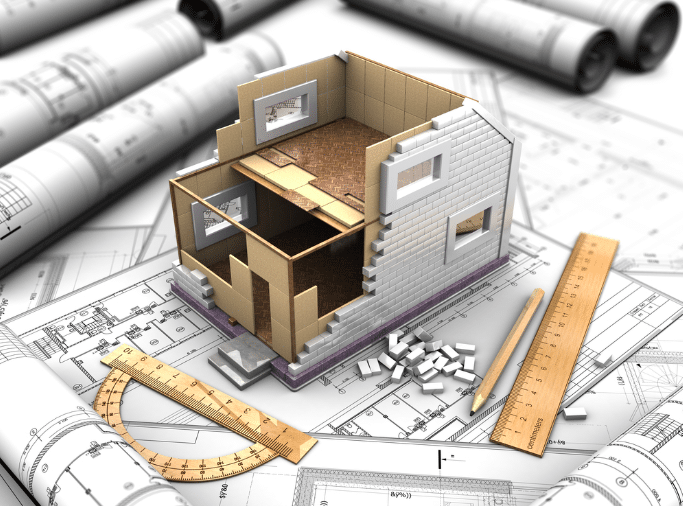
The Impact of Building Inspectors on Home Safety and Value
Building inspectors play a crucial role in ensuring the safety of not only the home, but also the people who reside within the space. Their thorough inspections and evaluations examine all aspects of the home – from the foundation to the roof – to guarantee that everything is up to code and meets standards for quality and safety.
By identifying potential issues building defects and hazards for home owners early on, building inspectors help prevent accidents and disasters, making homes safer for all. Homeowners can rest easy knowing that their property is free of hazards and their loved ones are protected from harm.
Beyond their impact on safety, building inspections are also highly influential in determining the long-term value of a property. Buyers often make decisions based on the condition of a home, and having a building inspector’s seal of approval can significantly increase its value. Inspections reveal any repair or maintenance needs, which can be addressed before listing the home for sale, making it more attractive to potential buyers.
Additionally, a clean building inspection report can give buyers peace of mind in their next property purchase, knowing they are investing in a home thoroughly examined and verified to be in top condition. All in all, building inspectors are essential in ensuring both the safety and value of a property purchases pre purchase building a home, making them a valuable asset in the world of real estate.
Conclusion: Ensuring a Safe and Compliant Home
Ensuring a safe and compliant home must be emphasized more. Building inspectors are critical in verifying that a construction project adheres to all the relevant codes and regulations. They inspect everything from foundations and framing to electrical systems and plumbing installations, ensuring that each aspect of the house is up to code and safe for its occupants.
Without their expertise and attention to detail, homes could be structurally unsound or threaten both the people and the surrounding environment. Therefore, ensuring that qualified building inspectors who are present throughout the construction process is paramount to the safety and longevity of any home.
In conclusion, it’s essential to acknowledge the vital role that building inspectors play in ensuring safe and compliant homes. While their importance is often overlooked, their work is indispensable to guaranteeing that homes are built to the highest standards and comply with all regulations.
Through their careful examination and thorough house inspections, they help create a safer environment for the occupants of these dwellings— a responsibility that should never be taken lightly. So, the next time you find yourself in a well-built, structurally sound, and compliant house, take a moment to thank the building inspectors who helped make it possible.

